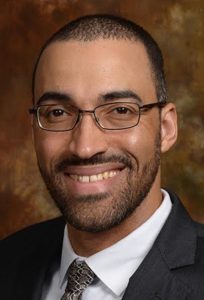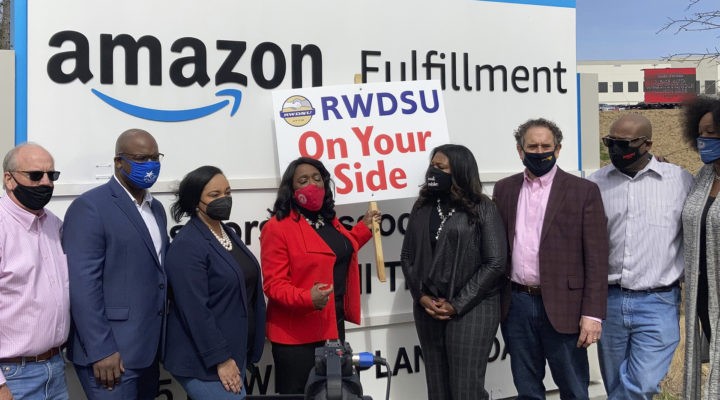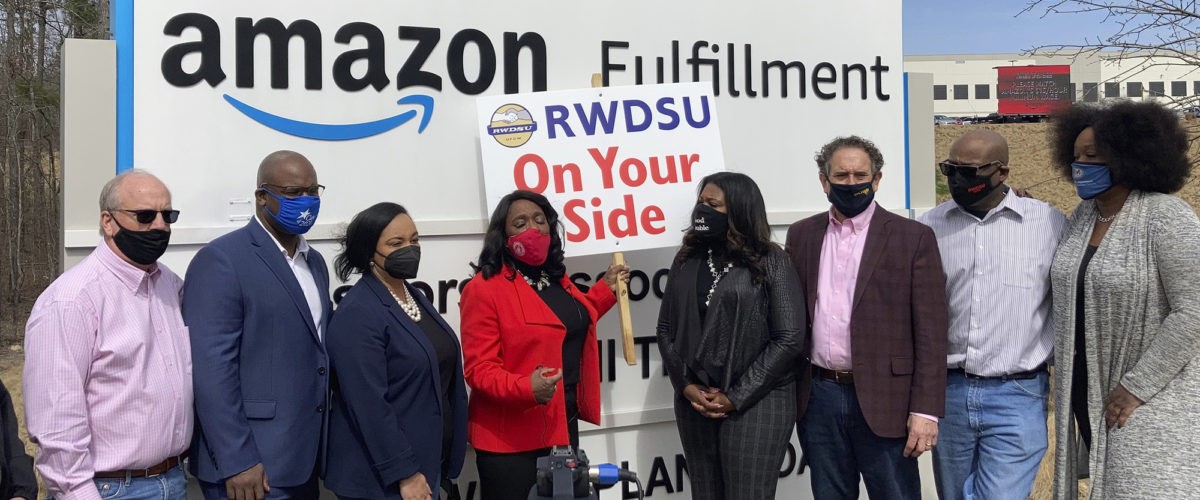Today, months of organizing comes to a climax as balloting ends in the quest to unionize some 6,000 workers at the Amazon fulfillment plant in Bessemer, Ala. The campaign — in this deep-red, right-to-work state — has enormous implications for the future of worker rights and protections throughout the South.
As was expected, Amazon has done everything it can — both aboveboard and in more shady ways — to defeat this campaign, knowing its success would force them to cede a level of power, authority and control that looks more like the way this global monopoly is forced to operate in some of the heavily unionized nations of Western Europe. The union campaign has earned support from high-profile public figures and elected officials, including President Joe Biden.

Paul Robeson Ford
What was perhaps most significant in recent weeks, however, was the decision by Bishop William Barber II to detour the Poor People’s Campaign and make a stop in Bessemer to rally for the union. His move to back this campaign is a reminder that the politics of Jesus require us to take sides at times like this and stand in the same position as Jesus would stand if he still walked this earth in the flesh.
Some will read that last line and think I’ve gone too far in politicizing a Savior whose ministry sets him above and beyond such partisanship and worldliness; those who believe that Jesus’ ministry “transcends politics” and therefore should not be sullied by such a fight no doubt bristle at the notion that Jesus might have shown up in Bessemer like Bishop Barber did. But in fact, nothing could be further from the truth, and Jesus and a union go together like two expressions of the Holy Trinity.
Why?
Because at the center of a union’s mission is a concern for protecting, promoting and advancing the welfare of workers who labor on the means of production but — historically — have no say over the means of production. They can work hard every day, for year after year and decade after decade, but they will ultimately walk away from their work without the wealth that their labor makes possible.
There always has been something wrong with this formula; there always has been something unjust about it. And at its best, the union is the force that fights against this inequity and empowers workers to live, labor and one day retire with at least a meaningful measure of that wealth (however infinitesimally small it may be in comparison to the wealth extracted by the owners).
“None of this is intended to blindly glorify the past and present realities of the way unions actually have operated in society.”
None of this is intended to blindly glorify the past and present realities of the way unions actually have operated in society. To do so would be to disregard the complicated and often sordid history and present witness of some unions that propagate injustice for the many while protecting the interests of the few. The trade unions of professional sports players, for instance, have only exacerbated the gross disparities in wealth that are exploited by the whole professional sports industry. The amount of money changing hands in that industry is obscene and obnoxious when we consider the persistent problem of global poverty, food insecurity and inadequate access to health care.
Of even greater concern are the police unions and prison guard unions who are fierce forces for maintaining the status quo that oppresses Black and brown and poor people and dismisses and devalues their lives. And like many unions exemplified historically, they are modern models of unrepentantly racist labor conglomerates that aggravate our long-overdue efforts to overthrow white supremacy once and for all time. God’s preferential option for the poor demands that we completely dismantle police and prison guard unions and the evil they often support. At the least, they need a gut rehab.
But these examples simply remind us that even the most inherently righteous efforts to mimic radical solidarity with the poor and oppressed can be manipulated for ungodly purposes. A union alone may or may not move in the world in the way that God intends it to do. A union alone may or may not be pulled into the belly of the beast and become an instrument for the forces of darkness and democratic demise. A union alone may or may not be a force for good, and may in fact, become a force for evil.
But Jesus and a union? A union guided by the politics of Jesus and anchored by the plight of the least of these? A union, birthed out of a concern for giving David a steady supply of stones to take down however many Goliaths may stand in his way? A union, committed to countering the power structure that privileges the few and disadvantages the masses?
“That is the kind of power that can turn the world upside down and move in the spirit of the eschatological reversal.”
Well, that kind of union represents real, world-changing power. That is the kind of power that can turn the world upside down and move in the spirit of the eschatological reversal (the last shall be first and the first shall be last) that honors the life and ministry of Jesus Christ in a way that nothing else can. Jesus died for this work. The least we can do is organize for the same while we live here and now.
So as Holy Week begins today, I’ll be praying for victory in Bessemer and hoping for a triumphant end to an unlikely campaign. I’ll be praying for victory for the pro-union vote, victory for the prospect that workers in the most unfavorable of demographic circumstances can win, and victory for the idea that those who own the wealth ought to be compelled to negotiate with those who make the wealth. It’s only just. It’s only right.
I’ll be praying for Jesus and a union today.
Paul Robeson Ford serves as senior pastor of First Baptist Church (Highland Avenue) in Winston-Salem, N.C. He was born and raised in New York City and grew up at the Riverside Church under the leadership of James A. Forbes Jr. He received a master of divinity degree from the Divinity School at the University of Chicago, where he is now a candidate for the Ph.D. in theology.
Related article:
Q&A with Chris Sanders on unions, social justice and policing


